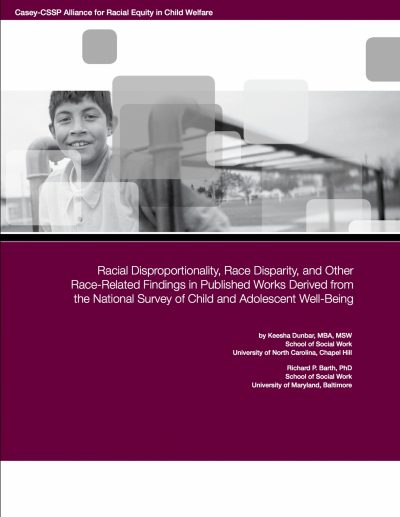Developmental Implications
Black children are less likely to receive services than white children; these racial inconsistencies in services received remain even after controlling for need.

To examine the racial disproportionality in child welfare, this report draws on peer-reviewed papers and chapters from data gathered during the National Survey of Child and Adolescent Well-Being (NSCAW). Topics include child factors and related services, including early childhood development and early intervention services, as well as mental health and substance abuse treatment needs and access; parental factors and related services, including parental arrest and child involvement with child welfare services agencies, as well as domestic violence; and reunification and related services.
Race and ethnicity was not found to be a significant predictor in services received by children remaining at home, nor was it an indicator in whether children would be placed in out-of-home care; but race and ethnicity are strongly associated with the overall level of child welfare involvement, especially for younger children.
NSCAW Findings
We hope you'll find value in this report. We’d love to get a little information from you, which we'll use to notify you about relevant new resources.